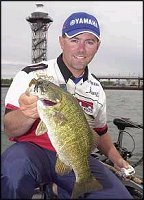Practice plans
Question
I am a volunteer coach for a coach pitch team. I travel a ton for work. I want to assemble practice plans for my assistant coaches to follow in my absence. I am having problems getting started. My biggest problem is keeping the steady progression going. Can you provide assistance.
Thanks,
Billy Bryant
Answer
Billy: The first step I would suggest is making a list of all the skills and situations you feel you will need to teach, based upon your league level,the age and experience of your players.
On my website, www.theoleballgame.com, under baseball drills, there is a section entitled Skills Checklist. It is larger than you will need for the age of your players; but may provide you with a guideline to build one that would work for you. It is a situational list, doesn't cover individual skills such as hitting, fielding and throwing, all of which are the main course in a practice, with a couple of the checklist situations added in.
From that list it is easier to create progressions, within the areas you have selected as important.
If you determine the number of practice days available, you can then create your practice road map to cover those items. It is good to keep a degree of flexibility, as things seldom go as you think they might. Each time you have a game, situations can arise that will need attention, and generally there is no time like the present while it is fresh in their minds. Thus, the progression sequence tends to get bumped and adjusted; but that is just the way coaching goes.
For myself, it has worked well to have a consistent practice format, so that we are consistent in the time frame, just adjusting what we are working on each day.
Example:
Stretch/form run: Small amount of time spent here with your age group.
Throwing: both for warming up; but mainly instruction.
Individual defense and offensive skills: Alternate this section on an every other practice basis. Defense would be ground balls and fly balls in this segment. Offense mostly base running skills.
Team Defense: Every now and then add in, or substitute for individual skills, team situations where you hit or throw balls to a defense, using the rest of the players as base runners. On my site, there is a drill called defensive situations off a fungo, which provides the most gain for the least amount of time invested.
Hitting: Depending on the number of coaches you have, a set of hitting stations, each run by a coach, provide the best use of time and can be set up as progressional. Each station can be set up as progressional, whereby you are working on the same concept each practice at that station, just adding a little to it as they are able to handle it. A lot of reps and keep them moving.
Really important to have a coach at, and in charge of each station. Left to the players own volition, not much will happen.
Once the players are familiar with the format, practice flows smoothly, whether it is this particular format or one entirely different. It is the structure that gives them confidence that things are organized and everything has a purpose and a goal, and that comes from creating your list of what you feel is important, and creating your road map for them to follow.
Billy, I hope I have understood what you were asking and have provided some assistance. If I didn't cover what you were hoping for, let me know and we can readjust.
Good luck to you. Coach pitch is a great age.
Yours in baseball,
Rick
baseball instructions
When Is It A Forfeit


